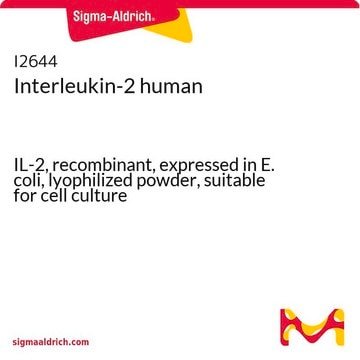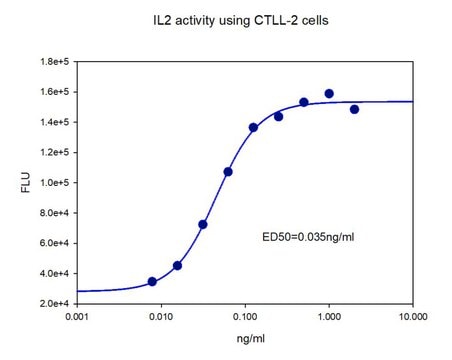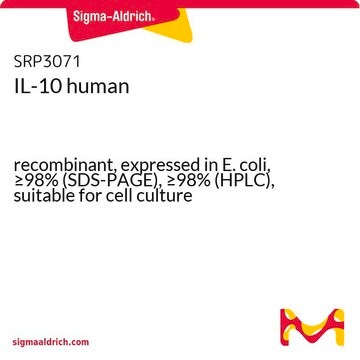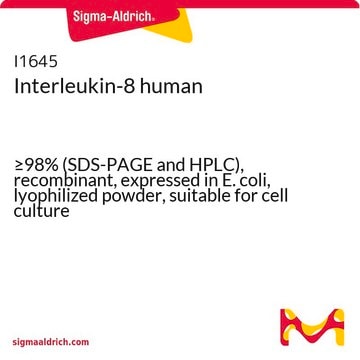I7908
IL-2 human
≥98% (SDS-PAGE and HPLC), recombinant, expressed in Pichia pastoris, lyophiilized powder, suitable for cell culture
Synonym(s):
IL-2, Interleukin-2, T-cell growth factor
About This Item
Recommended Products
product name
Interleukin-2 human, recombinant, expressed in Pichia pastoris, suitable for cell culture
biological source
human
Quality Level
recombinant
expressed in Pichia pastoris
Assay
≥98% (SDS-PAGE and HPLC)
form
lyophilized powder
mol wt
predicted mol wt ~15 kDa
packaging
pkg of 10KU
technique(s)
cell culture | mammalian: suitable
impurities
endotoxin, tested
UniProt accession no.
shipped in
dry ice
storage temp.
−20°C
Gene Information
human ... IL2(3558)
Looking for similar products? Visit Product Comparison Guide
Application
Biochem/physiol Actions
Physical form
Analysis Note
Storage Class Code
13 - Non Combustible Solids
WGK
WGK 3
Flash Point(F)
Not applicable
Flash Point(C)
Not applicable
Personal Protective Equipment
Certificates of Analysis (COA)
Search for Certificates of Analysis (COA) by entering the products Lot/Batch Number. Lot and Batch Numbers can be found on a product’s label following the words ‘Lot’ or ‘Batch’.
Already Own This Product?
Find documentation for the products that you have recently purchased in the Document Library.
Customers Also Viewed
Our team of scientists has experience in all areas of research including Life Science, Material Science, Chemical Synthesis, Chromatography, Analytical and many others.
Contact Technical Service













